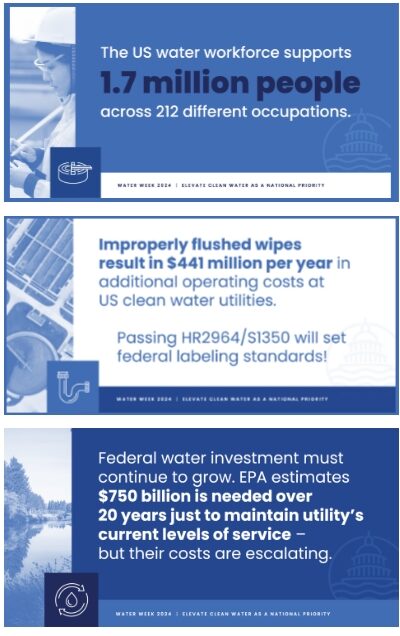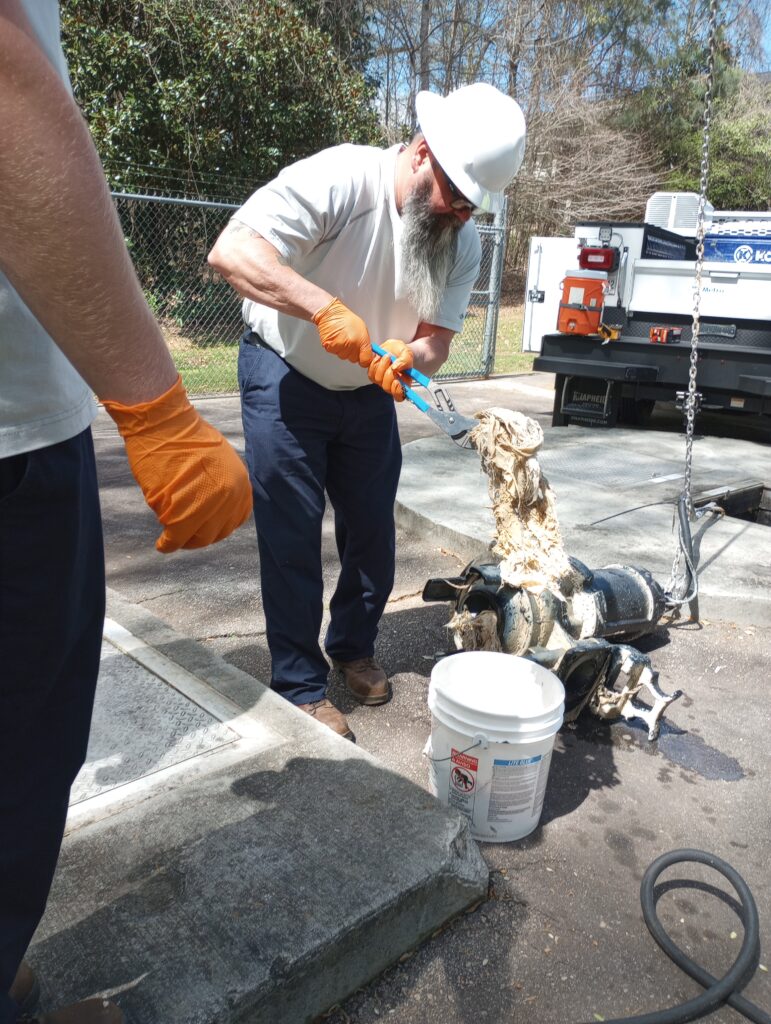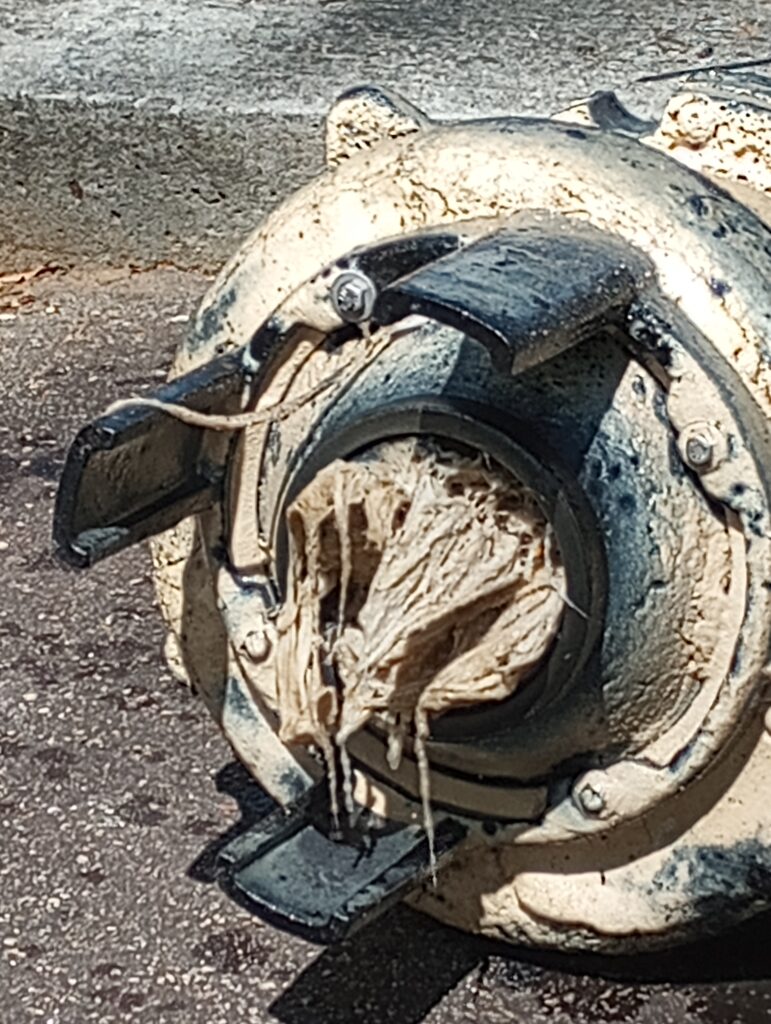Water Week Empowers Local Utilities
Water Week in Washington, D.C., is well underway, with groups such as the Water Environment Federation (WEF), the American Water Works Association (AWWA), and the National Association of Clean Water Agencies (NACWA) descending on our nation’s capital this week to advocate for clean and safe water. This year’s theme, “Elevating Clean Water,” and focus on empowering local water solutions with national support, resonates strongly with MetroConnects as we embark on our Clean Water Forward initiative. The initiative concentrates on improving local sewer infrastructure to protect our natural resources, with a specific focus on the eight Greenville County Mill Villages that MetroConnect serves. Our first project will break ground later this month in the Mills Mill Village, where we will repair and replace century-old sewer systems to keep the community safe from Inflow and Infiltration (I&I), Sanitary Sewer Overflows (SSOs), and other issues caused by aging and deteriorating infrastructure. This urgent and critical work would not be possible without federal and local support, which includes a $10 million SCIPP grant, awarded by the South Carolina Rural Infrastructure Authority (RIA) and funded through the American Rescue Plan Act (ARPA), as well as a $3 million grant from Greenville County, also funded through ARPA. The $3 million will be split evenly between the Mills Mill Village project and a second project in the Dunean Mill Village, slated to begin this summer. The Dunean project was also awarded $10 million in SCIIP funding. Later this year, MetroConnects begins its next Clean Water Forward projects in the Union Bleachery and Judson Mill Villages. MetroConnects is thankful for the funding already received for these projects and joins the Water Week coalition in urging Congress to continue supporting our work and the work of other water utilities as we work on critical water infrastructure repair and rehabilitation.
An Urgent Investment
This call for continued federal assistance comes at a particularly crucial moment, as it coincides with an announcement earlier this week by the Environmental Protection Agency (EPA) that it has established national limits for six types of per- and polyfluoroalkyl substances (PFAS) in drinking water. This important move, which sets an upper limit to the amount of the potentially harmful “forever” chemicals that can be found in drinking water, nevertheless comes at a cost. Local drinking water utilities will be held responsible for filtering out the PFAS, known as “forever chemicals” because it can take decades, even centuries, for the compounds to break down. Utilities will have three years to test for the chemicals and two years to begin the filtering process to keep their PFAS levels below the new limit. The EPA estimates the cost of meeting the standards will be upward of $1.5 billion per year for the first few years, although they point out that the real cost is much lower when weighed against the expense of treating health problems related to PFAS, including cancer and heart disease. Others, however, argue that the infrastructure costs will be much greater than estimated, and will continue beyond the initial investments needed to purchase and install filters. One billion dollars of funding is already being made available in grants to help water systems operators through the Infrastructure Investment and Jobs Act, but a priority for organizations representing the water sector at Water Week is to advocate for more and continuous federal funding in order to protect consumers from the possibility of the additional costs being passed on to them. Furthermore, advocates are arguing this week for source control as the first line of defense against PFAS, rather than relying on filtering after the contamination has taken place. Regulations must pinpoint the origins of PFAS and hold those parties responsible for the clean-up efforts, water industry advocates say. Those who profit off the contamination, they add, should be held liable for it.
Supporting the WIIPES Act
Of additional special importance to the wastewater world this Water Week is the call for Congress to pass HR2964/S1350, the WIIPES Act, which would require federal labeling standards that include the language “Do Not Flush” on all wet wipes, including those that market themselves as “flushable.” Wipes, including so-called flushable type, not only cause backups in sewer systems — potentially pushing wastewater into homes and businesses — but they also damage gravity pumps and wastewater treatment equipment. MetroConnects crews must clear out wipes that have jammed our pump station pumps several times a week throughout our service areas, taking up valuable time and resources. Federal labeling standards will help educate consumers about the extensive and expensive damage that flushing wipes can cause. This is a win for everyone!


Learn more about Water Week 2024 at www.waterweek.us.